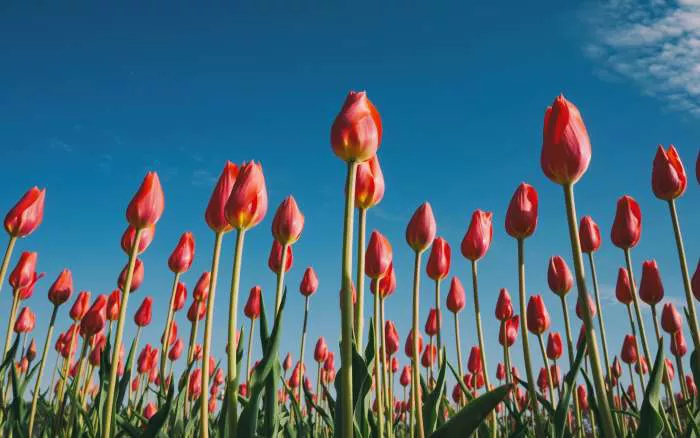A vegetable garden is not just about growing vegetables. Incorporating flowers into your vegetable garden can enhance its beauty, attract beneficial insects, and improve overall plant health. This article will explore the benefits of planting flowers alongside vegetables and recommend specific flowers that can thrive in a vegetable garden.
Understanding the Benefits of Companion Planting
Companion planting is the practice of growing different plants together for mutual benefits. Flowers can play a vital role in this system. They can attract pollinators such as bees and butterflies, which improve the pollination of your vegetables. Additionally, certain flowers can deter pests and provide habitat for beneficial insects that prey on harmful pests.
Flowers also contribute to the aesthetic appeal of a vegetable garden. They add color and variety, making the garden more enjoyable to work in and visit. By carefully selecting flowers, you can create a vibrant and productive garden space.
Choosing the Right Flowers
When selecting flowers for your vegetable garden, consider their growth habits, compatibility with vegetables, and the specific benefits they offer. Here are some flowers that are well-suited for vegetable gardens.
Marigolds
Marigolds are one of the most popular flowers to plant in vegetable gardens. They are known for their bright orange and yellow blooms, which can add a cheerful touch to your garden. Marigolds are particularly effective at repelling nematodes and other pests, making them a valuable companion to many vegetables. Their strong scent can deter aphids, whiteflies, and other common garden pests.
Nasturtiums
Nasturtiums are not only beautiful but also edible. Their vibrant flowers and leaves can add a peppery flavor to salads. Nasturtiums attract aphids, which can help protect your vegetables by drawing pests away from them. These flowers thrive in poor soil and can tolerate drought, making them easy to grow alongside various vegetables.
Borage
Borage is a hardy herb with striking blue star-shaped flowers. It attracts bees and other pollinators, making it an excellent choice for improving pollination in your vegetable garden. Borage is also known for its ability to improve soil health. Its deep roots can bring up nutrients from the soil, benefiting nearby plants. Additionally, borage leaves can be used as a mulch to suppress weeds.
Calendula
Calendula, also known as pot marigold, features bright yellow and orange flowers. These flowers are not only beautiful but also beneficial for the garden. Calendula attracts pollinators and can help deter pests like aphids and nematodes. The petals are edible and can be used in salads or as a garnish. Calendula is also known for its medicinal properties, making it a valuable addition to your garden.
Zinnias
Zinnias are vibrant flowers that come in various colors and sizes. They are excellent at attracting butterflies and other pollinators to your garden. Zinnias thrive in sunny locations and can tolerate heat, making them suitable for summer vegetable gardens. Their presence can enhance the overall health of your garden by promoting biodiversity.
Sunflowers
Sunflowers are not only stunning but also serve multiple purposes in a vegetable garden. They attract pollinators and can provide shade for more delicate plants. Sunflowers can also act as a natural trellis for climbing plants like beans. Additionally, their seeds can be harvested and enjoyed as a nutritious snack.
Cosmos
Cosmos are easy-to-grow flowers that produce abundant blooms in shades of pink, white, and orange. They attract beneficial insects, including ladybugs and lacewings, which help control aphid populations. Cosmos thrive in poor soil and can tolerate drought, making them a low-maintenance option for your vegetable garden.
Planting Considerations
When planting flowers in your vegetable garden, consider their growth habits and spacing. Ensure that flowers do not overshadow your vegetables or compete for resources. Group flowers together in designated areas or intersperse them among your vegetable plants to maximize their benefits.
It is also essential to consider the blooming periods of the flowers you choose. Select a mix of early, mid, and late-blooming flowers to ensure that there are always blooms available to attract pollinators throughout the growing season.
Caring for Your Flowering Plants
Like vegetables, flowers require care and attention. Ensure that they receive adequate sunlight, water, and nutrients. Regularly deadhead spent blooms to encourage continuous flowering and prevent the plants from going to seed too early. Monitor for pests and diseases, and take appropriate action if necessary.
Conclusion
Planting flowers in your vegetable garden can enhance its beauty and functionality. Flowers like marigolds, nasturtiums, borage, calendula, zinnias, sunflowers, and cosmos offer various benefits, from attracting pollinators to deterring pests. By carefully selecting and caring for these flowering plants, you can create a thriving vegetable garden that is both productive and visually appealing. Embrace the art of companion planting and enjoy the many rewards it brings to your gardening experience.


